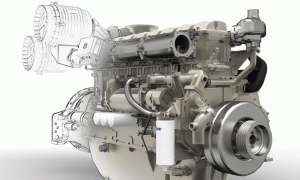Smart grids ‘can save GCC countries $10bn by 2020’
Innovation is key to manage region’s increasing energy demands as governments flip the switch on renewable energy initiatives, says report

One of the most important steps towards improving electricity diversification and conservation in the GCC, is to develop smart grid and smart metering roll-out under the overall umbrella of demand side management, according to a recent Ventures Report commissioned by Middle East Electricity.
It is estimated that GCC countries can save up to USD 10 billion in infrastructural investment by 2020 through the use of smart grid, which optimises supply and demand by using information technology to provide a two-way flow of real time information between power generation, grid operators and consumers.
One of the pioneering government bodies for this technology is DEWA who are fully-prepared to turn this vision into reality through new smart initiatives and services. DEWA invests heavily in innovation in the field of renewable and clean energy technology, and are spearheading developments such as Shams Dubai which connects solar power in homes and buildings to DEWA’s grid, Smart Applications via Smart Meters and Grids, and the Green Charger to build the infrastructure and electric-vehicle charging stations. The project will include the construction of a smart grid model at DEWA’s headquarters, which will include solar panels, an energy storing system (ESS) and integrated operating system.
Taking a look at the UAE as a collective, their Vision 2021 focuses on fostering innovation in its power sector (renewable energy). As a clear example, the recently announced Dubai Clean Energy Strategy 2050 aims to provide 7% of Dubai’s energy from clean energy sources by 2020, 25% by 2030, and ultimately 75% by 2050. This drive toward clean energy is complimented by Dubai’s intent to become the world’s smartest city by 2017.
In Dubai and throughout the UAE, electricity price reforms are underway that are supportive of distributed generation and the Dubai Clean Energy Strategy has a target for all rooftops in the city to produce solar energy by 2030. One other very important example of UAE’s clean energy project is Dubai’s Mohammed Bin Rashid Al Maktoum Solar Park and currently, space technology is being used to support the renewable projects in the UAE.
Taking a look at the wider GCC countries, they have been playing a critical role in the global shift towards renewable energy and have been heavily investing in major solar and wind power projects worldwide, as well as adopting innovative and increasingly cost-competitive technologies in their own domestic markets.
Accelerating the growth of solar is the continued development of innovative technologies and services that are further driving down the cost of solar systems, offering the GCC countries a more valuable and economically viable energy alternative to conventional fossil fuels.
The Gulf Cooperation Council Interconnection Authority (GCCIA) has commissioned the first ever 400-kV super grid that connects the power network of the GCC countries. In a bid to combat the risk of blackouts on each national grid and share energy resources, GCCIA linked the electrical power network of all its member states.
GCCIA promotes reliable, competitive and sustainable electrical transmission services and the successful implementation of the GCC smart grid project has brought to the foray suggestions focusing on the interconnection of GCCIA to other regional and global grids. Implementing a large interconnection across different continents will play a pivotal role in enhancing the capabilities of a High Value Direct Current (HVDC) network, and mitigating the power outage issues. Enabling real-time decision-making, greater control and remote monitoring, the switch to smart grid technology also facilitates the growth and use of renewable power generation sources.
Middle East Electricity 2017 will be taking place from February 14-16 at the Dubai World Trade Centre.
For more information, please visit – www.middleeastelectricity.com

